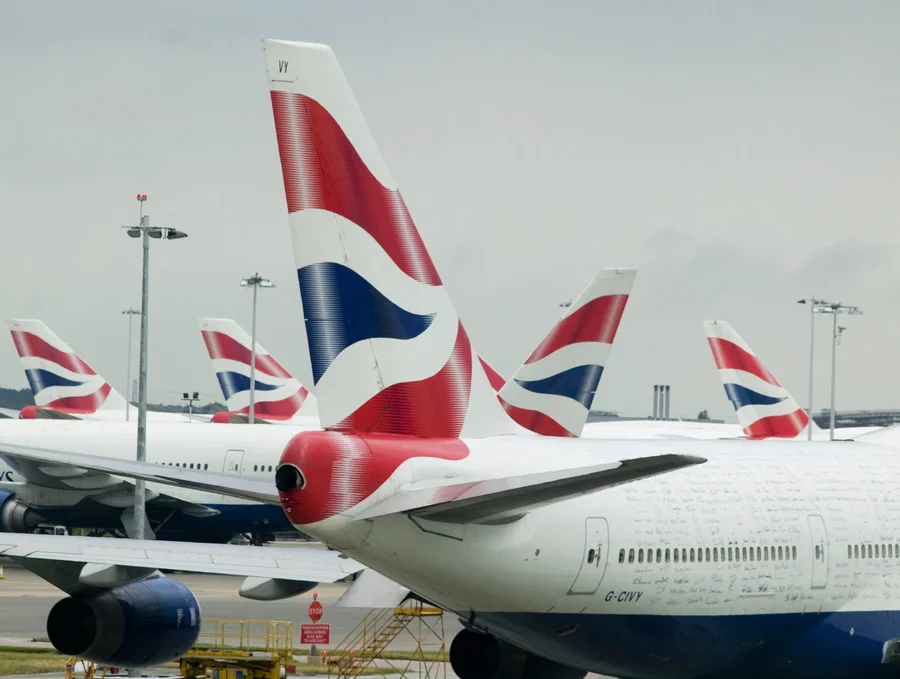IAG appoints new Chief AI Scientist for AI innovation, aiming to enhance customer experiences, optimise operation & drive sustainable efficiencies.
Even though AI is being adopted and maximised worldwide, perhaps a less well known industry it’s also impacting is the aviation sector.
The global aviation industry is changing as AI technologies become increasingly integrated into its operations.
This shift is partially driven by mounting pressure to reduce costs, improve safety and minimise environmental impact in an increasingly competitive market.
Now, major airline groups are investing heavily in AI capabilities to maintain competitiveness, with industry estimates suggesting AI and analytics could create US$45bn in value globally for airlines.
One such company realising AI’s potential for the aviation industry is International Airlines Group (IAG), the parent company of airlines including Aer Lingus, British Airways, Iberia and Vueling.
An important strategy IAG has undertaken to emerge at the forefront of this transformation, is the appointment of Dr Ben Dias as its new Chief AI Scientist.
This move is part of a broader strategy to enhance customer experiences, optimise operations and drive sustainable efficiencies across the group’s airlines.
IAG driving AI innovation across airlines
IAG’s focus on AI innovation is evident in its establishment of IAG.ai labs in London and Barcelona.
KEY FACTS ABOUT DR BEN DIAS:
- Holds a PhD in Computer Vision and a Master’s in Mathematics and Astronomy
- Has over 20 years of industry experience in AI, data science and analytics
- Previously served as Data Science and Analytics Director at easyJet, leading their data strategy
- Ranked as one of the top 10 Business Scientists by the UK Science Council
- Named one of the top 100 most influential data and analytics practitioners in 2021 by DataIQ
- Advocates for ensuring AI solutions drive more equity and inclusion rather than exacerbating existing biases and inequalities
These labs serve as hubs for collaboration and innovation, bringing together experts from across the group to develop and implement AI solutions.
The company’s commitment to AI is further demonstrated by its plans to open additional labs, including one in Barcelona that will house 150 highly specialised professionals.
Already, the practical applications of AI within IAG’s operations are yielding results.
The group’s airlines are using machine learning to provide pilots with real-time weather data through AI-driven forecasts, enhancing safety and operational efficiency.
AI is also being employed to improve customer service, with virtual assistants reducing response times and personalising interactions.
Unlocking AI’s potential in aviation
Ben brings a wealth of experience to his new role, with a 20-year career spanning AI, data science and analytics.
His background, which includes leadership roles at companies such as Royal Mail, Tesco and Unilever, as well as academic credentials including a PhD in Computer Vision, positions him well to bridge the gap between theoretical AI research and practical applications in aviation.
Under his influence, IAG’s AI initiatives are also extending beyond operational improvements.
The group is also exploring the use of AI in areas such as predictive maintenance, route optimisation and personalised marketing.
These applications have the potential to significantly impact the bottom line while also improving the passenger experience.
Ben says: “I’m excited to find new ways to streamline operations, predict customer needs and increase efficiencies across the board.”
The broader context of AI in aviation
IAG’s investment in AI is part of a larger trend in the aviation industry.
Airlines worldwide are exploring ways to leverage AI and machine learning to address challenges ranging from sustainability aims including fuel efficiency to customer service.
For example, some airlines are using AI to optimise flight routes in real-time based on weather conditions, potentially saving millions in fuel costs and reducing carbon emissions.
The integration of AI into aviation operations also raises important questions about data privacy, security and the future of work in the industry.
As AI systems become more sophisticated, there will be a growing need for regulations and ethical guidelines to govern their use.
Looking ahead
As IAG continues to expand its AI capabilities, the group is well-positioned to lead innovation in the aviation industry.
The appointment of Ben and the establishment of dedicated AI labs demonstrate IAG’s commitment to harnessing the power of AI to transform its operations and improve the travel experience for millions of passengers.
Jorge Saco, IAG’s Chief Information, Procurement Services and Innovation Officer, emphasised the strategic importance of AI: “AI has the potential to make our businesses perform better, help our employees and is essential to our long-term success.”
Ben adds: “It’s a privilege to have joined IAG at such a pivotal time in their transformation programme. There’s a huge opportunity to use AI across innovation and it’s impressive the value and investment IAG are placing on this technology.



